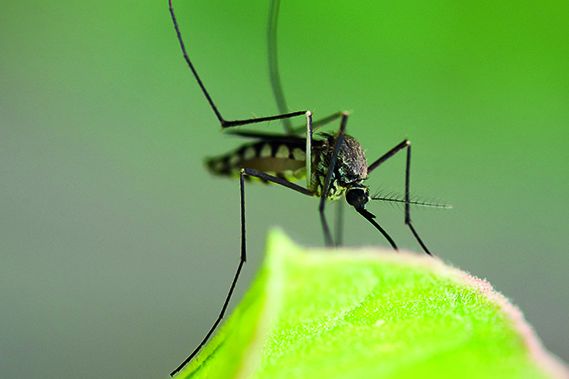
(Vienna, 02 January 2020) New developments in the field of genetic engineering, such as gene editing, offer great hope for improving vector control. On 8/9 January 2020, the international meeting organised by the UNESCO Chair for Bioethics at MedUni Vienna will discuss radical approaches and their impact upon Nature. One of the main questions is whether we require a new set of international ethical rules for Crispr/Cas9 genome editing and other new technologies.
Although mosquitoes are perhaps the best-known disease vectors, ticks, flies and fleas are also capable of transmitting infectious diseases, be that actively or passively. The commonest vector-borne diseases in Austria are Lyme's disease and tick-borne encephalitis.
Malaria kills more than 400,000 people a year
17% of deaths worldwide are caused by vectors, equating to more than 700,000 deaths a year. They all represent a serious threat to public health. Globally, malaria is the most serious of the infections carried by insects. It kills more than 400,000 people every year, most of them children under the age of five. But dengue fever, Zika virus and yellow fever are all associated with a high disease toll. On its own, dengue fever is responsible for more than 95 million cases of illness every year.
New developments in the field of genetic engineering, such as genome editing, offer great hope for improving vector control. "However, in the age of increasing resistance to tried and tested therapies and global warming, the precise impact of new technologies such as gene drives (methods for accelerating the spread of specific genes within a population) on the entire population of insects and hence on our ecosystem, is unpredictable," explains Christiane Druml, Head of the Josephinum and the UNESCO Chair for Bioethics. "This begs the question of our social responsibility and the protection of future generations."
The international meeting organised by the UNESCO Chair for Bioethics at MedUni Vienna, under the direction of Christiane Druml, will discuss radical approaches and their impact on Nature with doctors and scientists, representatives from the World Health Organization and ARRIGE (Responsible Research and Innovation in Genome Editing), as well as researchers from Lambaréné (CERMEL) in Gabon. One of the main questions is whether we require a new set of international ethical rules for genome editing and other new technologies.
Event: Vector borne diseases, the nature and genome editing: an ethical consultation on 8/9 January 2020
Place: Van Swieten Hall of the Medical University of Vienna
Van-Swieten-Gasse 1a, 1090 Vienna
Please confirm that you wish to attend by registering at: josephinum@meduniwien.ac.at.